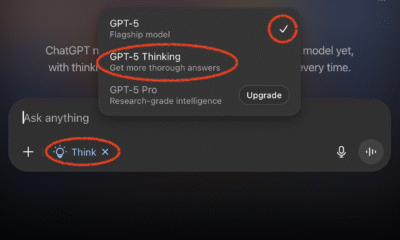
Tech News Roundup: The Biggest Stories from August 2025
August felt like tech’s version of a season finale—if you blinked, you missed something huge. Here’s everything that mattered (and plenty that made us roll our eyes).
Whew, what a month in the world of gadgets, AI, and internet drama. If you spent August juggling deadlines, festivals, and cricket scores instead of tech headlines, don’t worry—I’ve got you. I’ve rounded up the stories everyone’s been buzzing about, plus the stuff you’ll want in your group chat and your next late-night doomscroll session.
GPT-5 Goes Mainstream
August saw the long-anticipated release of GPT-5 — the latest iteration in OpenAI’s AI language model family. And for about three days, half of Twitter was convinced that it was about to solve world peace, end world hunger, and, just for fun, invent a whole new pizza topping. We were that optimistic.
Reality check? GPT-5 is still a huge leap forward, but it’s not perfect. It’s faster, smarter, and more intuitive than its predecessors, but don’t let the hype fool you—it’s still prone to occasionally making some truly ridiculous mistakes. Despite that, the real gem here is Thinking Mode, which lets the model walk you through its reasoning process, turning it from a chatbot into a sort of AI assistant with a clear thought process. This feature was a game-changer for users who want more transparency, and it also gave everyone a new hobby: trying to break it. Ask it to explain something absurd or attempt weird prompts, and it’ll happily oblige (and possibly give you a laugh while doing so).
TL;DR: GPT-5 is fast, smarter, and still a bit too eager to please, but its “Thinking Mode” is the real star. If you haven’t tried it yet, it’s time to get curious.
The Pixel 10 Arrives
Google’s Pixel 10 launched with an eye-watering price tag of Rs 79,990, and as expected, the internet went into a frenzy. The debate? Is this really worth it?
The usual suspects—camera specs, battery life, and pricing—were all under the microscope. While the main camera is undoubtedly one of the strongest selling points, Google’s decision to downgrade the ultrawide lens in favor of a telephoto zoom has sparked some heated discussions. Sure, the 30x ProRes Zoom is a cool party trick, but let’s be real—it’s hallucinating details beyond that. In 2025, even your phone is slightly delusional, but somehow, it’s convincing you that it’s capturing details that aren’t really there.
On the bright side, the battery life has finally caught up with the times. We’ve heard a lot of complaints about Pixel phones running out of juice too quickly in the past, but the Pixel 10 seems to have addressed that issue, lasting a solid day of heavy usage.
TL;DR: The Pixel 10 is here to make you second-guess your phone’s worth. Camera fans will love the solid main camera, but whether the telephoto upgrade is worth the price is a debate for the ages. Either way, Google’s hitting hard with this one.
AI Breakthroughs & Hype
Between GPT-5, Claude updates, and Google pushing AI into everything, August was wild. Suddenly, every productivity tool has “GPT inside,” startups everywhere are promising “AI-powered everything,” and yes, your email app probably wants to write your next angry reply for you. If you’re confused, so is everyone else.
TL;DR: AI is no longer the future; it’s the present. It’s showing up everywhere—sometimes helpful, sometimes overwhelming—but this train isn’t stopping anytime soon.
Quick Bits You Might’ve Missed
- Samsung Galaxy S25 FE: The leaks came in hot! Samsung confirmed its Galaxy S25 FE launch for September, and spec leaks are flooding the internet. Expect updates on everything from cameras to the new Exynos chipset that’s being talked up as a potential game-changer.
- iOS 26 Leaks: Apple’s iOS 26 was the subject of endless speculation, with more leaks about widgets, interface tweaks, and possibly even a shift to “AI-driven” notifications. The widget wars are set to continue as Apple tries to get the perfect balance between functionality and design.
- Windows 12 Rumors: Talk of Windows 12 is starting to heat up, and while it’s still mostly speculation, the main buzz is around the idea of an AI-first OS. Is Microsoft ready to give us an AI-powered desktop experience? Will it read our minds before we click “Send”? Only time will tell, but if the rumors are true, this is going to be a major shift in how we interact with our PCs.
Why This All Matters (And Why You Should Care)
August 2025 was undeniably a whirlwind of breakthroughs, surprises, and heated debates. From the jaw-dropping arrival of GPT-5 to the Pixel 10’s questionable zoom capabilities, there was no shortage of topics to argue about, laugh at, or wish for in your next late-night tech scroll. Whether you’re deep into the AI revolution or simply waiting to see how the next phone release stacks up, these are the headlines shaping the future of our gadgets—and maybe even our world.
TL;DR: August’s tech landscape was defined by AI’s growing presence, the Pixel 10’s bold attempt to redefine mobile photography, and the rise of GPT-5 making us all reconsider what’s possible with language models. It’s safe to say, 2025 is shaping up to be one of the most exciting (and overwhelming) years in tech yet.
Got a spicy take on all this? Think I missed something big? Or maybe you just need a place to argue about which phone really won (or lost) August? Hit the comment section.
Until then, stay tuned, stay curious, and maybe take a break from that doomscrolling every once in a while.
Tech News
iPhone 17 Pricing Shock: India Faces Steepest Price Increases in Apple History
Apple just unveiled the iPhone 17 series with some of the steepest price increases ever seen in India—the iPhone 17 Pro Max now starts at a jaw-dropping ₹1,59,990, and even the ‘budget’ iPhone 17 Air costs ₹99,990. Here’s why Indian consumers are getting hit hardest by Apple’s new pricing strategy.

The numbers are in from Apple’s “Awe Dropping” event, and for Indian consumers, they’re genuinely shocking. What was once considered expensive is now entering luxury car territory, with the iPhone 17 Pro Max starting at ₹1,59,990—making it the most expensive iPhone ever launched in India.
The Price Breakdown: Prepare Your Wallet
Here’s how Apple’s new pricing structure breaks down across the iPhone 17 lineup in India:
iPhone 17 Series India Pricing:
- iPhone 17: ₹89,990 (up from ₹79,900 for iPhone 16)
- iPhone 17 Air: ₹99,990 (replacing the Plus model)
- iPhone 17 Pro: ₹1,29,900 (up from ₹1,19,900 for iPhone 16 Pro)
- iPhone 17 Pro Max: ₹1,59,990 (up from ₹1,34,900 for iPhone 16 Pro Max)
That’s a ₹25,000 increase for the Pro Max model alone—enough to buy a decent mid-range Android phone.

The iPhone 17 Air: Premium Pricing for Compromised Features
Perhaps the most controversial pricing decision is the iPhone 17 Air at ₹99,990. This ultra-thin device, measuring just 5.5mm thick, replaces the iPhone 16 Plus but costs ₹10,000 more than its predecessor.

What you get for ₹99,990:
- 6.6-inch display with 120Hz refresh rate
- A19 chip (not the Pro version)
- Single rear camera (48MP)
- Ultra-thin design prioritizing aesthetics over functionality
What you lose:
- Dual camera system
- Longer battery life (due to thinness constraints)
- Advanced Pro features like ProRAW photography
The pricing suggests Apple is betting Indian consumers will pay premium prices for design over functionality—a risky gamble in a price-sensitive market.
Currency Impact vs. Global Pricing Strategy
Apple’s Indian pricing has historically followed a simple formula: $1 = ₹100. But with the current exchange rate at around ₹87 to the dollar, Apple appears to be padding prices beyond currency fluctuations.
Global Pricing Comparison:
- US: iPhone 17 Pro Max starts at $1,199
- India: ₹1,59,990 (equivalent to $1,839 at current rates)
- Effective markup: Nearly 53% over US pricing
This means Indian consumers are paying significantly more than their global counterparts, even accounting for taxes and import duties.
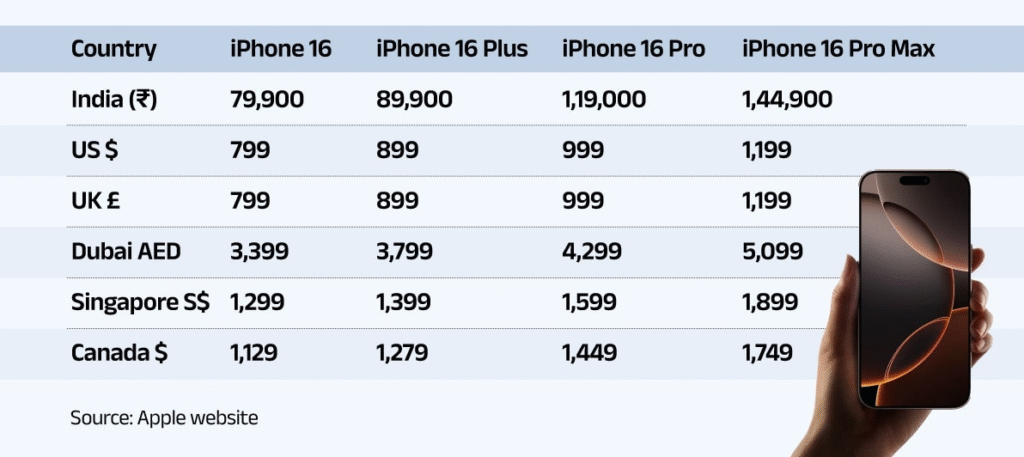
The Make in India Paradox
Here’s what makes these price increases particularly frustrating: Apple is now manufacturing all four iPhone 17 models in India through facilities including Tata Group’s plant in Hosur and Foxconn’s Bengaluru unit.
Despite local production—which should theoretically reduce costs—Apple has chosen to increase prices across the board. This suggests the company is prioritizing profit margins over the cost benefits of local manufacturing.
What ₹1.6 Lakh Gets You (And What It Doesn’t)
For the iPhone 17 Pro Max’s ₹1,59,990 starting price, you get:
- 6.9-inch display with ProMotion
- A19 Pro chip with improved graphics
- Triple 48MP camera system with 8K video recording
- Enhanced thermal management
- Wi-Fi 7 support
- 256GB base storage (finally)
But here’s the reality check: That same ₹1.6 lakh could buy:
- A flagship Android phone + a premium laptop
- A decent motorcycle
- 2-3 years of iPhone 16 Pro usage at current depreciation rates
- A significant down payment on a car
The Festive Season Gamble
Apple’s timing is strategic but risky. Launching these prices just before India’s festive season—traditionally the biggest sales period—suggests confidence that Indian consumers will absorb the shock.
Pre-order and availability:
- Pre-orders: September 12
- General availability: September 19
- Festive season discounts: Unlikely for at least 3-6 months
The Competition Advantage
These price increases hand significant advantages to competitors:
Samsung Galaxy S25 Ultra (expected around ₹1,20,000):
- Similar flagship features at ₹40,000 less
- More storage options
- Better zoom capabilities
OnePlus, Xiaomi, and other flagship killers now have a massive pricing umbrella to operate under, potentially offering 80% of iPhone features at 50% of the cost.
Why Apple Thinks It Can Get Away With This
Despite the sticker shock, Apple’s pricing strategy isn’t entirely irrational:
- Brand loyalty: iPhone users tend to stick with the ecosystem
- EMI culture: Many buyers focus on monthly payments rather than total cost
- Status symbol: iPhones remain aspirational products in India
- Trade-in programs: Older iPhone values help offset upgrade costs
The Real Winners and Losers
Winners:
- Apple shareholders (obviously)
- Android flagship manufacturers getting pricing umbrella
- Older iPhone models getting extended life cycles
Losers:
- Indian consumers facing 15-25% price increases
- First-time iPhone buyers priced out of the ecosystem
- Small retailers unable to move premium inventory
What This Means for the Market
Apple’s aggressive pricing could backfire in a market where smartphone penetration is still growing and price sensitivity remains high. While the company has successfully positioned iPhones as luxury products, there’s a limit to how much the market will bear.
The success of these prices will largely determine whether other premium brands follow suit or use this as an opportunity to gain market share with more reasonable pricing.
Bottom Line: Apple is betting that Indian consumers’ desire for iPhones is price-inelastic. The next few quarters will reveal whether they’re right—or whether they’ve finally priced themselves out of significant market growth.
Will you be upgrading to the iPhone 17 series at these prices, or are these increases finally pushing you toward alternatives? Let us know in the comments.
Tech News
Live Coverage: Apple’s “Awe Dropping” Event (September 9, 2025)
We’re here with the latest on iPhones, Apple Watches, and AirPods.
As the world tunes in tonight, here’s Cosbom’s live blog starting at 10:30 PM IST with play-by-play announcements, pricing details, and instant analysis of every major reveal.
10:30 PM — Keynote Kickoff
Tim Cook welcomes the world with “Awe Dropping” title graphics. Live stream quality is crisp, and social feeds are already buzzing.
10:35 PM — AirPods Pro 3
H3 chip, improved ANC, live translation, heart-rate monitoring, improved battery life.
Pricing: $249.
10:40 PM — Apple Watch Series 11 & Ultra 3
- Series 11 adds blood-pressure monitoring, brighter display.
- Ultra 3 gains satellite texting, advanced health sensors.
- Pricing: Series 11 starts at ₹39,990; Ultra 3 at ₹79,900 (India).
10:58 PM — iPhone 17
- Dual-lens camera, A19 chip, 6.1″ display.
- Price in India: ₹89,990.
11:10 PM — iPhone 17 Air
- Ultra-thin 5.5 mm chassis in five colors.
- 6.6″ 120 Hz display, A19 chip, single 48 MP rear camera.
- Price in India: ₹99,990.
11:25 PM — iPhone 17 Pro
- Triple-48 MP camera, “horizontal bar” design, 256 GB base.
- ProMotion 120 Hz, A19 Pro chip.
- Price in India: ₹1,29,900.
11:35 PM — iPhone 17 Pro Max
- 6.9″ display, advanced thermal system, Wi-Fi 7 support.
- 256 GB base storage.
- Price in India: ₹1,59,990.
11:45 PM — HomePod & Services
- HomePod 2 gets spatial audio.
- Apple One bundle adds Fitness+ AI-powered workouts.
11:50 PM — Pre-orders & Availability
- Pre-orders begin Sept 12 at 5 AM PT (6:30 PM IST).
- In-store launch: Sept 19.
- iOS/iPadOS/macOS updates roll out Sept 16.
11:50 PM — Closing Remarks
Tim Cook thanks developers and customers. Stream ends with “See you next year” teaser and product montage.
Key Takeaways:
- Indian pricing jumps: Air at ₹99,990; Pro Max at ₹1,59,990.
- Software rollout (iOS 26, macOS 26) synced with hardware release.
- Apple doubles down on health features across wearables.
Stay tuned for in-depth hands-on reviews, detailed feature analyses, and comparison guides coming soon!
This page is being updated live, please reload the page if you don’t see the latest updates. You can also head on to our Live Streams section at live.cosbom.com
Tech News
Apple’s “Awe Dropping” Event: iPhone 17 Air and Everything to Expect This Tuesday
Apple’s biggest product launch in years is just 48 hours away, and the iPhone 17 Air could be the most radical iPhone redesign since the iPhone X. Here’s everything we know about Tuesday’s event.
Apple’s highly anticipated fall event is scheduled for Tuesday, September 9 at 10 AM PT (10:30 PM IST), promising what could be the company’s biggest product refresh in years.

The iPhone 17 Lineup:
- iPhone 17 Air: Ultra-thin at just 5.5mm thick, 6.6-inch 120Hz display, A19 chip
- iPhone 17 Pro: Starting at $1,099 (up $100), 256GB base storage
- iPhone 17 Pro Max: Redesigned camera system
- Standard iPhone 17: Expected pricing and specs
- Major Software Updates:
- Apple will announce the official release dates for its 2025 software lineup, all numbered with “26” to represent the September 2025-2026 season:
- iOS 26: Features the new “Liquid Glass” user interface, redesigned Camera app, enhanced ChatGPT integration, improved Apple Intelligence capabilities
- iPadOS 26: Introduces a completely new windowing system, Preview app for iPad, enhanced Files app with folder customization, Background Tasks for intensive operations
- macOS Tahoe 26: New features and improvements for Mac users
- watchOS 26: Updated features for Apple Watch
- visionOS 26: Updates for Vision Pro headset
- The iOS 26 public release is expected around September 15-16, with release candidates available immediately after the September 9 event.
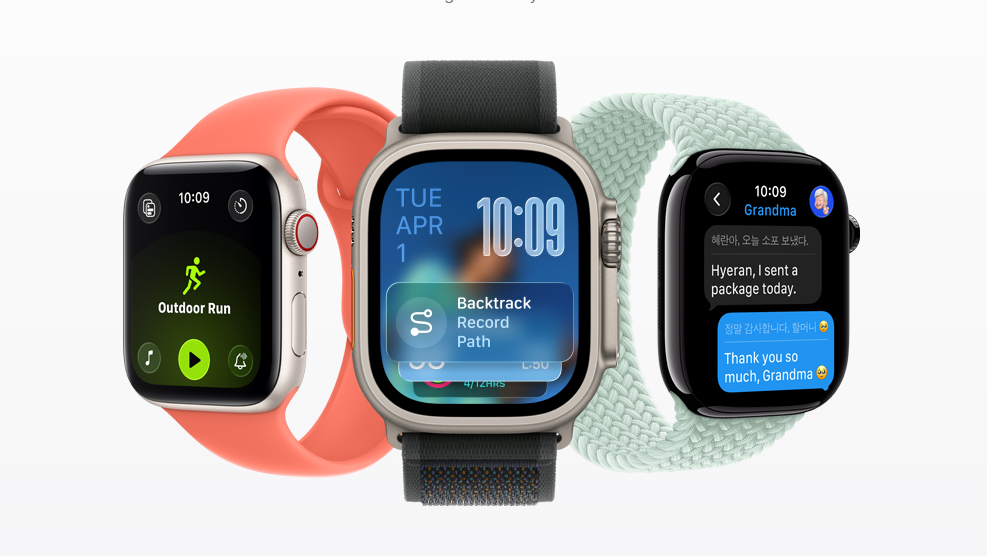
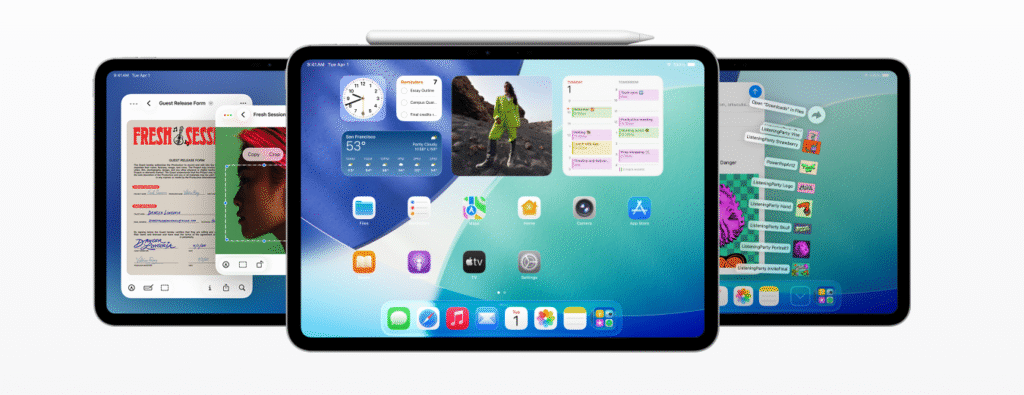
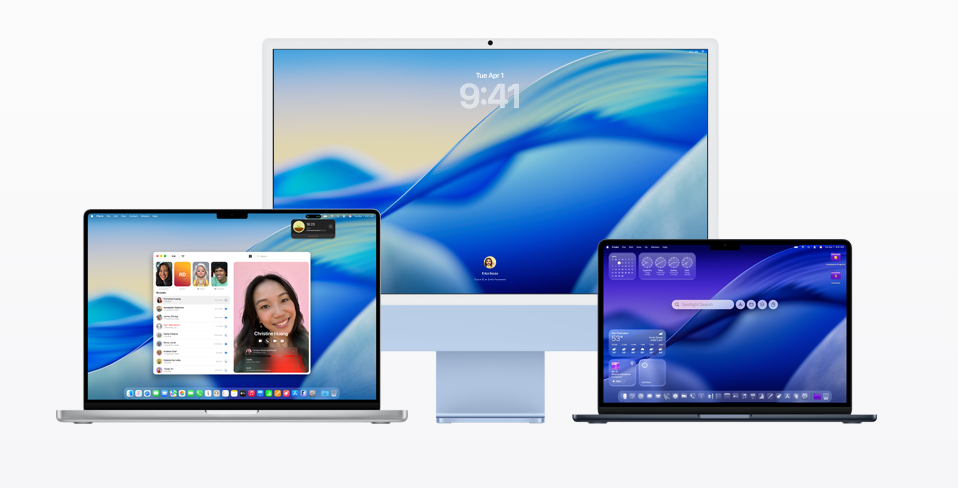
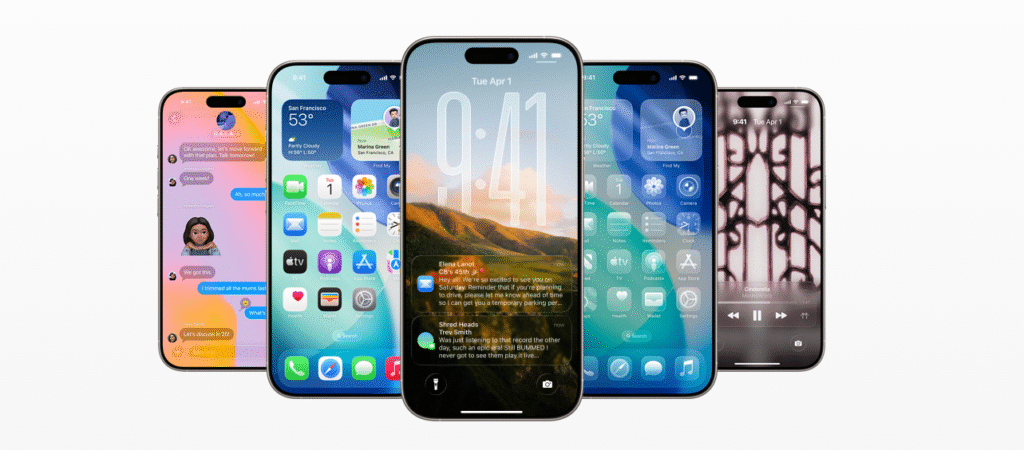
Other Expected Launches:


Key Dates:
- Event: September 9, 10 AM PT (10:30 PM IST)
- Pre-orders: September 12, 5 AM PT
- iOS 26 Release: September 15-16 (expected)
- Hardware Release: September 19
The iPhone 17 Air represents Apple’s biggest design shift in years, prioritizing thinness over battery life with only a single rear camera.




















